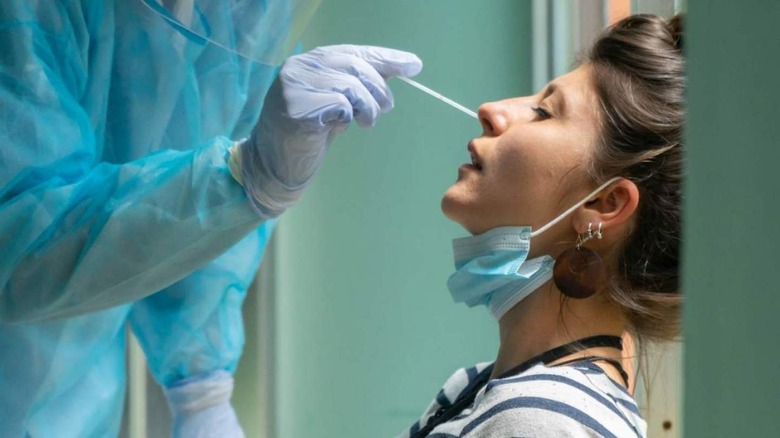FDA advisory panel endorses Merck's COVID-19 pill, but it was a close vote
The FDA's Antimicrobial Drug Advisory Committee met today, as anticipated, to decide whether it would recommend molnupiravir, an oral antiviral medication, as a new treatment option for COVID-19. The votes are now in, and though there were many opposed, the advisory panel ultimately recommended that molnupiravir receive an emergency use authorization (EUA).
Recommendation, not authorization
As with the COVID-19 vaccines, the recommendation doesn't mean Merck's oral antiviral treatment has been authorized for use. Rather, the panel's recommendation paves the way for the FDA to make its own decision about whether it'll grant the company's EUA request. The CDC, too, will need to decide whether it endorses the drug, which is intended for adults who have mild and moderate COVID-19 and who are at high risk of severe outcomes.
The panel ultimately voted 13 to 10 in favor of granting molnupiravir emergency authorization, which would become the first oral antiviral drug designed to treat COVID-19. The medication, which comes from Merck and Ridgeback Biotherapeutics, is to be taken once every 12 hours for five days once COVID-19 symptoms manifest.
Big questions remain
Some of the experts on the committee shed light on the reasons for the narrow vote (via NBC), including concerns about the drug's efficacy, potential birth defects, and ongoing questions about whether the drug could lead to additional virus mutations that make the COVID-19 vaccines less effective.

Merck SVP of Clinical Research Nicholas Kartsonis told NBC that the pharmaceutical company doesn't have info on the odds its drug could induce a mutation of concern. Of note, molnupiravir is designed to trigger mutations in the SARs-CoV-2 virus that inhibits its ability to replicate. FDA senior virology reviewer Patrick Harrington went on to explain that there's isn't enough info at this time to determine whether the drug could lead to a new transmissible variant.
The FDA advisory committee has published a document on the meeting, summarizing the drug's efficacy data, safety information, and the trials that produced the details. The addendum concludes with a note about the "urgent unmet need for safe and effective oral agents" designed to help treat COVID-19 in patients who haven't yet been hospitalized with the disease.
"The risk-benefit assessment of molnupiravir supports a EUA," the panel says in the document.
Efficacy revision
The panel's narrow recommendation comes only days after Merck and Ridgeback published an update on its molnupiravir trial, reporting a decrease in protection compared to the interim analysis results. Based on the latest results, the companies said the oral antiviral treatment offers a relative risk reduction in severe COVID-19 of 30-percent, a drop from the previously reported 48-percent.
Molnupiravir will potentially join monoclonal antibodies as a treatment for high-risk COVID-19 patients, helping prevent a more serious disease progression that could lead to hospitalization and death (via HHS). The mixed responses from experts, however, raises questions over whether the FDA will issue an emergency authorization for molnupiravir and what kind of restrictions may be placed on its use, assuming a EUA is granted.
